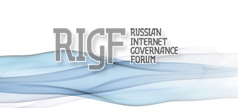 |
FORUM NEWSRIGF-2011: russia can play a pivotal role in the internet governance17.05.2011The 2nd Russian Internet Governance Forum (RIGF-2011) held on 12 May 2011 in Moscow in Expocentr Krasnaya Presnya is now over. The Forum was co-hosted by the Coordination Center for TLD .RU and the RF Ministry of Telecommunications and Mass Media. The Forum was attended by 500 plus participants, including 100 foreign ones, who represented governments, business community and major international organizations. In his keynote address, Igor Schegolev, the RF Minister of Telecommunications and Mass Media, cited a pivotal role of the Russian Internet Governance Forum in uniting all stakeholders engaged in Internet governance in Russia and worldwide and in the debate on, and addressing key Internet governance issues. The Minister enunciated that Russia is not going to impose a strict control over the Internet’s functioning and that the Government champions an unrestricted expansion of the Internet. “Last year, Moscow has joined the community of centers hosting Internet governance forums. Today, the critical challenge is to acquire our own voice and solidify our well-deserved position in the global processes in this area,” – noted I. Schegolev. Peter Dengate Thrush, Chairman of the ICANN Board, noted a pivotal role which Russia has played lately in the Internet governance area and called on the Russian Internet community to take a yet more pro-active stance in this process. Markus Kummer, ISOC’s Vice President for Public Policy, reckoned that the Internet owes its success as a vital social and economic tool, first of all, to a unique model of development and engagement. “Co-governance has made the Internet what it is now. Without the engagement of a wide range of stakeholders combined with an open and transparent cooperation, it is unlikely that the Internet will flourish for the benefit of all,” – stressed Mr. Kummer. Marina Nikerova, Chair of the CC’s Board, was congratulated on having been nominated for the ICANN Board. Addressing the gathering, she said, "Today, Internet governance is actually governing our lives. And everything else will depend on how efficiently we implement Internet governance." The Forum participants focused on security issues. At the plenary session, Mikhail Grishankov, First Deputy Chairman of the State Duma Committee on Security, and Natalya Kasperskaya, Chair of the Board of Directors of the CSC “Kaspersky Lab” and General Director of InfoWatch, addressed this issue in their presentations. The same issue was debated at the round tables, where the theme of Internet governance was directly linked with the users’ concern about safety and security of their personal data, and with the theme of control over content, which after being posted on the Web, becomes available to everyone, including children. The Forum allowed organization of interaction between representatives of the government, business and civil society. It is noteworthy that much attention was paid to the exchange of experiences and information between representatives of different countries. One of the Forum’s round tables focused on challenges facing development of the Internet in the CIS countries. It was attended by representatives of national registries, which have a common history and therefore their experiences prove extremely helpful to each other. The opening of the Forum coincided with another milestone development in the Runet’s life– that is, the first anniversary of IDN TLD .РФ. That did not pass unnoticed by the Forum participants - much was told on the magnitude of development of national non-Latin domains as yet another way towards the Internet’s accessibility to the mankind. A public lecture by David Farber, Professor at Carnegie Mellon University, who is also called “the grandfather of the Internet”, was held for the Forum participants and for all who attended the closure of the Forum. The Internet was born before his very eyes and with his direct assistance. All Professor Farber’s activities over several decades focused on making the Internet better, faster and more accessible for all. That is why his presentation provoked a stormy response from the audience and attracted not only Forum’s participants but SvyazExpocomm-2011 visitors as well. Recapping on the outcome of the 2nd Russian Internet Governance Forum, the Andrey Kolesnikov, CEO of the Coordination Center, , noted that the Forum was up to its mission – that is, to facilitate interaction between all the stakeholders. “A year ago, we saw our Forum as a perfect platform for discussions on the Internet governance issues and other issues of concern to the Internet community. Many of those who were with us last year came back. This means they found our Forum handy and worth attention. Moreover, I also see a large educational role of the Russian Internet Governance Forum. A year ago nobody thought about Internet governance. Today, this issue is discussed at length in users’ blogs, at public events, and in the government agencies. We have developed an open dialogue with international organizations wherein Russian representatives should be yet more active, so that to contribute with our views to shaping the global agenda for the Internet’s development. I hope that we will continue to have such meetings in the future,” – said Andrey Kolesnikov. |







